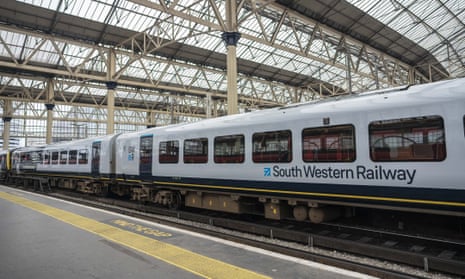Rail disruption in Britain at the start of the summer holiday peak is set to intensify as the train drivers’ union Aslef announced another week of industrial action.
A new overtime ban across the major train operating companies in England will run from Monday 17 July to Saturday 22 July, coinciding with two of the first of three 24-hour strikes by the RMT union.
The announcement came as the first day of a week-long national overtime ban by train drivers took effect, forcing train operators across England to run reduced services.
Virtually every company relies to some extent on overtime, or “rest day working”, by drivers to run their full timetable, although the effect of the ban will vary across the country.
South Western, Chiltern and Thameslink are among those that have significantly reduced their timetables to avoid on-the-day cancellations. Chiltern has told passengers to avoid travel next Saturday, when disruption is expected to be most severe, and will not now call at Wembley Stadium when it is hosting a concert.
Greater Anglia, Great Western, Southern, Great Northern and TransPennine Express have also cut back services. Gatwick Express trains will not run.
Other operators have warned of potential cancellations on the day and advised passengers to check for updates.
Aslef’s general secretary, Mick Whelan, said the union was prepared to act for as long as it took to get a fair deal.
“We want to resolve this dispute. Train drivers don’t want to be inconveniencing the public. That’s why we have given the government and the rail operators plenty of opportunities to come to the table and talk to us but it is clear that they do not want a resolution,” he said.
“Our members – the train drivers who keep the railway running day in, day out, from early in the morning until late at night, all the year round – have shown they are not prepared to accept the government’s attempts to force our industry into managed decline.”
after newsletter promotion
The Rail Delivery Group, which represents the industry, has said the union has rejected a “fair and affordable offer” that would raise average driver base salaries from £60,000 to almost £65,000.
Most schools in England will break up for holidays by 21 July. The RMT will strike on 20, 22 and 29 July.









